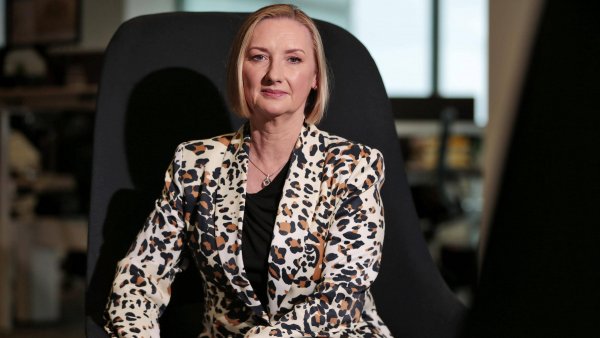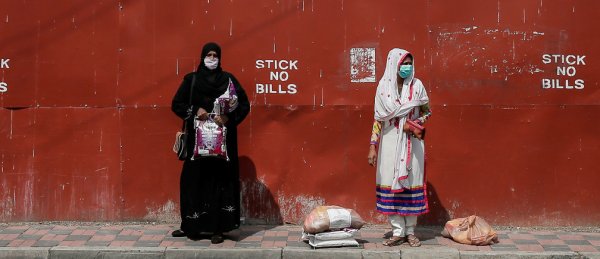The Catch-22 of female ageing was captured beautifully in Julia Baird’s book Phosphorescence. “It’s as though ageing is a little … embarrassing, unkempt and sloppy,” Baird writes, noting that we shame women for the visible signs of growing older – slackening skin, thinning lips, crepey hands – and shame them when they “too obviously try not to age” by using fillers, Botox and face lifts.
For women, it’s not just about the physical signs; they are perceived to be not just less attractive, but less competent. Ageism, unsurprisingly, is becoming one of the most common forms of discrimination and, even more unsurprisingly, it is women who are bearing the brunt of it.
Put ageism and sexism side by side and it is little wonder that only one female CEO was appointed to an ASX200 company in the past year.
Put ageism and sexism side by side and it is little wonder that only one female CEO was appointed to an ASX200 company in the past year, alongside 24 male CEOs. Only 10 of the 200 corporate leaders in the ASX200 are women – that’s a pitiful 5%.
It’s the fourth year of the census run by Chief Executive Women and little has changed over that period. As CEW president Sue Morphet told BroadAgenda the results are, well, “disappointing”.

Susan Lloyd-Hurwitz, CEO of Mirvac since 2012 and one of the 5%.
The reasons are both systemic and cultural – and defy growing evidence that diverse boards and senior executives deliver for the bottom line.
The lack of affordable, accessible childcare is among the chief reasons there are a lack of women in the pipeline for senior management roles. The fact that men rarely take parental leave or opt for flexible work arrangements are another. Implicit bias in recruitment and promotions is a third and attitudes that deem older women to be less attractive and less competent is the fourth. While the first three factors can potentially be addressed – if the will and correct policy settings are in place –the last is particularly troublesome.
And particularly in the time of COVID.
An article this week in the Harvard Business Review confirms the impact of the pandemic on women. Women are 1.8 times more vulnerable to job losses, it says, noting that women make up 39% of global employment but accounted for 54% of overall job losses as of May.
Women make up 39% of global employment but accounted for 54% of overall job losses as of May.
“If no action is taken to counter the regressive effects, we estimate that global growth could be $US1 trillion lower in 2030 than it would be if women’s unemployment simply tracked that of men in each sector,” the article states. (An article in Slate flags the medical term ‘acute on chronic’ to explain the impact of COVID: when someone – or some nation – has a chronic condition such as extreme poverty, the acute impact of COVID is going to have a multiplier impact).

The impact of COVID on women globally is ‘acute on chronic’.
The HBR article goes on to point to the dilemma raised in the CEW census – that “gender diversity is the key to financial success”. It notes a McKinsey study that found the top quartile of companies for gender diversity on their senior executives were 25% more likely to have above-average profitability. A recent report using data from the Workplace Gender Equality Agency found precisely the same thing.
“Companies now pulling back on diversity and inclusion may be placing themselves at a disadvantage,” the HBR says.
Australia’s top companies are simply failing themselves and their shareholders by their insistence of white male leadership teams.
No wonder Sue Morphet is despairing. Australia’s top companies are simply failing themselves and their shareholders by their insistence of white male leadership teams (14 ASX200 companies have zero women on their executive).
Of course, women don’t just get hammered by job losses and stalled career trajectories. The Guardian reported this week that one of the government’s proposed COVID economic fixes – to fast-track the next round of income tax cuts – will deliver $2.28 of benefits to men for every $1 that flows to women.
But back to childcare for a moment – after all, it is fundamental to aspiring to gender equality. Time magazine ran an op-ed from two US congresswomen – Cindy Axne and Katherine Clark – that makes the simple but profound analogy that childcare is another form of infrastructure, just like roads and bridges.
“It is well understood that infrastructure decisions like public roads and transportation are the foundation on which local economies grow. But an obstacle of similar magnitude is threatening the economic recovery that communities across our country are clamouring for – a shortage of safe, affordable childcare,” they write.
It may not be as obvious as a bridge or a tunnel, but … childcare is just as essential to the productivity of our economy.
“It may not be as obvious as a bridge or a tunnel, but … childcare is just as essential to the productivity of our economy. And the dual crises of pandemic and economic recession has threatened a permanent and dramatic contraction of this vital sector.”
In other news, a survey by the wonderful new US feminist media platform The 19th found that women in Donald Trump’s White House earn a mere 69 cents to every dollar earned by their male workmates. (Not sure if this includes Ivanka). The US average gender pay gap is 82 cents on the dollar.

Underpaid? Sarah Huckabee Sanders and Kellyanne Conway.
However, hats off to BHP’s Australian operation which is actively working to employ women in traditionally male roles. It was reported that female representation in the company has increased by 9% – or 4000 women – since 2016 and that the percentage of new hires in the past financial year who were women was 39.3% female, up from just 10.4% in 2015.
Back to the US for a moment and an article in Politico that grabbed my attention was that women politicians are starting to talk about (gasp) their skin care, clothes and exercise routines.
Of course, the paradigm-shifting Alexandria Ocasio-Cortez is involved having recently filmed a segment for Vogue on her skin care and make-up routines – and that truly awesome red lipstick.
The implication, of course, is that is ok to be a woman, behave like a woman and also be a politician.
It was a point vigorously discussed by Kate Ellis, a former federal politician, and Virginia Hausseger on our new podcast BroadTalk. It’s well worth a listen.
And lastly, I will leave you with footage of Brazilian Maya Gabeira who not only surfed the biggest wave ever surfed by a woman off the coast of Portugal, but the biggest wave of the year. Full stop.
Enjoy your weekend.
Julie




